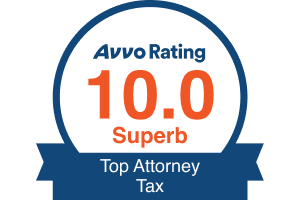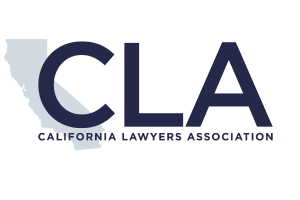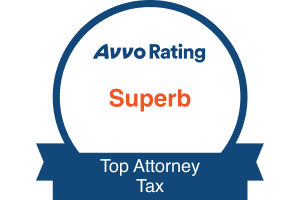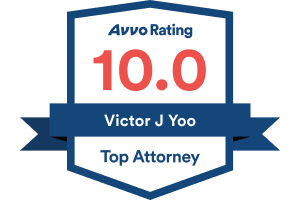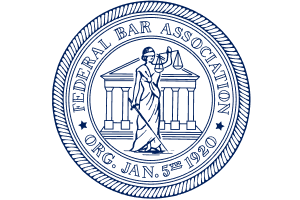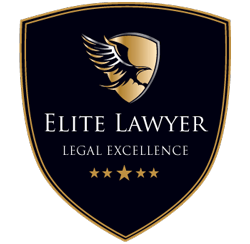Getting Results
EDD Audit Appeal
Appealing EDD Issues:
The California Employment Development Department (EDD) oversees payroll tax compliance, unemployment insurance, and other employment-related programs including independent contractor vs employee status. When businesses or individuals face adverse EDD decisions—such as tax audit assessments, worker misclassification rulings, or benefit denials—they have the right to appeal. EDD tax attorney can prepare the appeal documents and prepare your case for EDD tax trial.
Understanding EDD Issues and Grounds for Appeal
The EDD administers several programs, including payroll tax collection, unemployment insurance (UI), and state disability insurance (SDI). Common issues that may prompt an EDD tax appeal include:
- Payroll Tax Assessments: Following an EDD audit, businesses may face assessments for unpaid taxes, penalties, and interest, often due to worker misclassification (e.g., classifying employees as independent contractors).
- Unemployment Benefit Denials: Workers may be denied UI benefits, or employers may dispute a former worker’s eligibility.
- Overpayment Notices: The EDD may claim that benefits were overpaid, requiring repayment.
- Penalties for Noncompliance: Penalties may be imposed for late filings, late payments, or fraudulent misclassification, ranging from 2% to 50% depending on the violation.
Tax Appeals are handled by the California Unemployment Insurance Appeals Board (CUIAB), an independent administrative court system established in 1943 to review EDD decisions. The EDD Tax appeal process allows EDD tax lawyers representing taxpayers, employers, and workers to present evidence and challenge EDD determinations before an Administrative Law Judge (ALJ).
Legal Standards for EDD Appeals
The legal framework for EDD appeals is rooted in the California Unemployment Insurance Code (CUIC) and the California Code of Regulations, Title 22. Key standards include:
A frequent issue in EDD tax audits is whether workers are employees or independent contractors. The EDD relies on the ABC test under Assembly Bill 5 (AB5), effective 2020, which presumes workers are employees unless:
- A: The worker is free from the hiring entity’s control and direction.
- B: The work is outside the hiring entity’s usual business.
- C: The worker is engaged in an independently established trade or business.
If the ABC test is inconclusive, the EDD applies a multifactor test under 22 CCR Section 4304-1, considering factors like:
- The principal’s right to control the manner and means of work (the primary factor, per Isenberg v. California Employment Stabilization Commission, 1947).
- Whether the worker operates a separate business.
- The skill required and whether the work is typically unsupervised.
- Who provides tools and the workplace.
2. Reasonable Cause for Noncompliance
For penalties or late filings, taxpayers may argue reasonable cause, such as unavoidable circumstances (e.g., natural disasters, illness, or reliance on erroneous EDD advice). The EDD evaluates whether the taxpayer exercised ordinary business care and prudence.
3. Timeliness and Good Cause
Appeals must be filed within 30 days of the EDD’s notice (e.g., Notice of Assessment, Notice of Determination, or Notice of Overpayment). Late appeals may be accepted if the appellant demonstrates good cause for the delay, such as illness or miscommunication.
4. Settlement Considerations
Under CUIC Section 1236, the EDD may settle disputes to avoid litigation costs, considering factors like litigation risk, fairness, financial hardship, and business survival. However, settlements often require agreeing to worker reclassification, which may not suit employers seeking to preserve independent contractor status.
The EDD Tax Appeal Process
The appeal process involves several steps, from filing a petition to potentially escalating the case to court. Below is a detailed guide providing step by step process to file EDD Tax Appeal in California.
Step 1: Review the EDD Notice to Determine What You Will Appeal
The EDD issues notices such as:
- Notice of Assessment (NA): Outlines taxes, penalties, and interest owed, often following an audit.
- Notice of Determination/Ruling (DE 1080CZ): Denies UI benefits or rules on worker eligibility.
- Notice of Overpayment (DE 1444CT): Demands repayment of benefits.
Review the notice carefully for the mailing date, as the 30-day appeal window begins then. Notices served by mail extend the deadline by:
- 5 days if the petitioner is in California.
- 10 days if outside California but in the U.S.
- 20 days if outside the U.S.
Step 2: File the Appeal
To appeal, submit a written petition to the CUIAB within 30 days. Options include:
- Appeal Form (DE 1000M): Available for download from the EDD website or included with the notice.
- Written Letter: No specific form is required. The letter must include:
- Business or individual name, address, and phone number.
- Employer account number or claimant’s Social Security number.
- Reason for the appeal, including specific disagreements with the EDD’s decision.
- Copy of the notice or its mailing date.
- Any request for language assistance or accommodations.
- Representative’s name and contact information, if applicable.
The petition can be:
- Mailed to the address on the notice.
- Shipped via express carrier.
- Electronically transmitted (if permitted by the CUIAB).
- Delivered in person to a CUIAB office or EDD branch.
Timely Filing Benefits: Filing a petition halts EDD collection actions (e.g., liens, levies) until the appeal is resolved, though interest continues to accrue.
Step 3: Request the EDD Audit File
For audit-related appeals, request a copy of the EDD audit file (at a $5 fee) to review the evidence and the EDD’s rationale. This step is critical for preparing your case. EDD Tax Lawyer can also issue discovery request to get the full file on the case.
Step 4: Consider Tax Settlement
Before a hearing, you may negotiate a settlement through the EDD’s Settlement Program (DE 231SP), authorized by AB 318 (1998). Settlements can reduce assessments but may require conceding worker reclassification. Contact the EDD’s settlement office to explore this option.
Step 5: Prepare for the Hearing
The CUIAB will send a Notice of Hearing (NOH) at least 10–20 days in advance, specifying the time, date, location, and issues to be addressed. Hearings may take 6–12 months to be scheduled.
Preparation Tips:
- Gather Evidence: Collect documents (e.g., contracts, invoices, payment records) and witness testimony to support your case, especially for worker classification disputes.
- Review EDD’s Position: The EDD will file an answer to your petition, outlining its stance and any procedural issues (e.g., untimely filing).
- Understand Relevant Law: Review CUIC provisions (e.g., Sections 621, 621.5 for corporate officers or unlicensed workers) and EDD publications for your industry.
- Hire a Professional: An experienced tax attorney or EDD lawyer can develop legal arguments, prepare briefs, and represent you at the hearing.
Step 6: Attend the EDD Tax Appeals Hearing
The hearing is conducted by an ALJ, who allows both parties to:
- Present evidence and witnesses.
- Cross-examine opposing witnesses.
- Submit exhibits.
Hearings are formal but less rigid than court proceedings. The ALJ will issue a written decision within weeks, mailed to all parties.
Step 7: Review the ALJ’s Decision
The ALJ’s decision may:
- Uphold the EDD’s tax determination.
- Reverse or modify the assessment or ruling.
- Grant benefits or refund overpayments.
If the ALJ rules in your favor, any overpaid amounts are refunded. If the decision is unfavorable, you have options for further appeal.
Step 8: File a Second-Level Appeal (If Necessary)
If you disagree with the ALJ’s decision, file a second-level appeal with the CUIAB Appeals Board within 30 days of the decision’s mailing date. The Appeals Board reviews the hearing transcript and evidence but does not hold a new hearing.
If the Appeals Board fails to issue a decision within 90 days, you may treat the claim as denied and file a lawsuit against the EDD director, with a possible two-year extension if requested in writing.
Step 9: Pursue a Refund Claim or Superior Court (If Necessary)
If the Appeals Board denies your petition, you can:
- Pay the assessment in full and file a claim for refund with the EDD.
- If the refund claim is denied, file a second petition with the Chief ALJ.
- If still denied, appeal to the Superior Court after exhausting administrative remedies.
Forms Required for EDD Appeals
The primary forms and documents include:
- Appeal Form (DE 1000M): Used for UI benefit denials, overpayment notices, or employer disputes. Available at edd.ca.gov.
- Written Letter: A letter can substitute for DE 1000M, provided it includes all required information (see Step 2).
- Supporting Documentation: Contracts, payroll records, correspondence, or other evidence to support your case.
- Notice of Assessment or Determination: Attach a copy to the appeal petition.
Consult a Tax Attorney
Contact us today at 310-788-9820 to schedule a confidential consultation. Let our experienced EDD tax attorneys assess your case in preparation for your EDD Tax Appeals.


